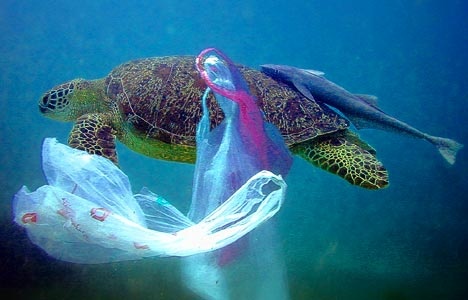Production of plastic bags can be traced back to 1950s.
But the lightweight shopping bag saw the light in the early 1960s when a Swedish engineer, Sten Gustaf Thulin, found a method of designing a simple and yet strong bag with a high load-carrying capacity, which was later patented worldwide by Celloplast of Norrköping, Sweden in 1965.
It wasn’t until early 1980s though, after US petrochemicals group Mobil successfully overturned Celloplast’s US patent, that the worldwide adoption of the lightweight plastic bags took its hold.
Once the manufacturing was perfected, Kroger, a Cincinnati-based grocery chain, began to replace its paper shopping bags with plastic bags in 1982, which was shortly followed by its rival, Safeway.
Plastic bags soon became very popular. The very low manufacturing costs of the bags, which were made from ethylene, a by-product of petroleum, meant using them in abundance by everyone with no thoughts of its consequences. The effects of their usage in a very short-time proved to be very damaging to all things that mattered—to nature, to land and marine animals, and even to man-made infrastructures.
State of the Bag
It is estimated that a plastic bag might take up to 1,000 years to photodegrade, but in recent news, scientists are baffled by the “mysterious disappearance of plastic bags” that are littering the surface of our oceans.
Whether the result of these changes are good or bad, one wonders, if the disintegrated pieces of bags will find their way into our bodies through the food chain. Sadly, only time will tell.
People who came before us defined who we are today and left behind countless problems for us to solve. We can’t tackle them all in our generation, but we can do our best to solve the obvious, the simple, the most beneficial that can make a difference not just for the next generation, but for today’s, “ours.”
It is the duty of every one of us to first teach ourselves conservation before defining it for the next generation. It is our duty to leave no trace and conserve our planet.
Until such time that science finds a safe and environmentally friendly way of destroying these bags: reduce, reuse and recycle.
Paper or Plastic—Neither.
It is easy and more conceivable to believe that paper bags are a better choice over plastic bags, but truth be told, paper bags bring their own bad baggage.
Even before a paper bag gets in your hand, a tree must first be cut-down and processed with large energy-consuming machinery. Then this tree must be delivered by large trucks to manufacturing facilities where even more harmful resources are used by the time the final product reaches to you.
All in all, paper bags promote additional deforestation and destruction of natural carbon-dioxide consuming and oxygen producing perennial plants—the trees.
What’s Next?
Governments in some countries took note of the after-effects of disposable plastic bag usage and within a few short years after it’s introduction started to impose taxes on distribution or regulate their usage.
With an estimate of up to a trillion plastic bags used worldwide each year by Environmental Protection Agency (EPA), the plastic bag with its many agreeable benefits and uses, also brought environmental disaster and ugliness wherever the wind carried it.
Within the United States, the city of Fairfax, California took the lead phasing-out plastic bags with her small population in August 2007.
Today, various cities and municipalities of 17 states have programs phasing-out plastic bags by banning them from stores or imposing fees. But too much time has passed since the realization of their effects and more can be done.
Reach out to your local congressman or senator and petition to ban plastic bags in your local city and adopt using reusable bags. You can do your immediate part today by investing in few good eco-friendly bags. You might find them in your local stores or better yet, checkout our canvas and string bags and support the fight against hunger where Minopo will donate one meal with every five dollar purchase for a child in need.
Love elephant and want to go steady?
Sign up for our (curated) daily and weekly newsletters!
Apprentice Editor: Lauryn DeGrado / Editor: Travis May
Photo: Bagit Movie/Pinterest









Read 1 comment and reply